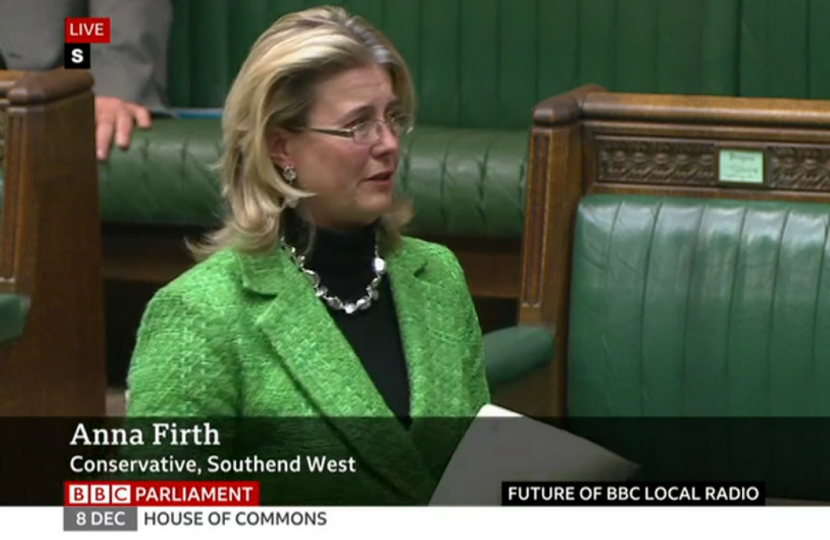
On 8th December, Anna Firth MP for Southend West spoke in the House of Commons debate on the future of BBC Local Radio.
This debate gained cross-party support due to the important role local radio plays across the UK. Local BBC radios are an instrumental part of elderly and blind people’s lives, as the radio provides a whole range of different useful shows, such as the news, weather, chat shows and sports coverage.
The Southend West MP has put forward her wholehearted support for the local BBC Essex radio service in Southend, stating that they provide hundreds of thousands of pounds to local and national charities, such as Endometriosis Foundation, Prost8 and the Music Man Project.
Anna also raised the point of her constituent, Annie Maxted, a lifelong Southend United fan, who is 100 years old. She can no longer attend the games, so she tunes into the radio to hear the commentary and live updates.
Without the essential funding the local radio would need, this service would disappear, and people like Annie would lose something they would struggle without.
Anna said in the Chamber,
“BBC Essex news coverage is second to none. It really understands the local issues that we are grappling with in Southend.”
“The BBC was founded on the principles of informing, educating and entertaining people, and BBC local radio is the epitome of that. My constituents need a local radio station that is relevant to their lives, and I urge BBC Essex to commit itself to continuing to provide the comprehensive local radio station that they love and deserve.”
“BBC Essex was absolutely brilliant in its coverage of the horrific murder of Sir David. They were some of the first press on the scene, and they were unique among the press in knowing the community and being able to report on that awful situation that day with sensitivity and authority.”
Mark Francois said in the Chamber,
“We all miss Sir David greatly, but the way that BBC Essex reported that and what followed was incredibly empathetic. It really understood the pain that the community in Southend were going through, because it had the reporters and production staff who knew those people and could tune in to what they were feeling. The way it did that was brilliantly commendable.”

